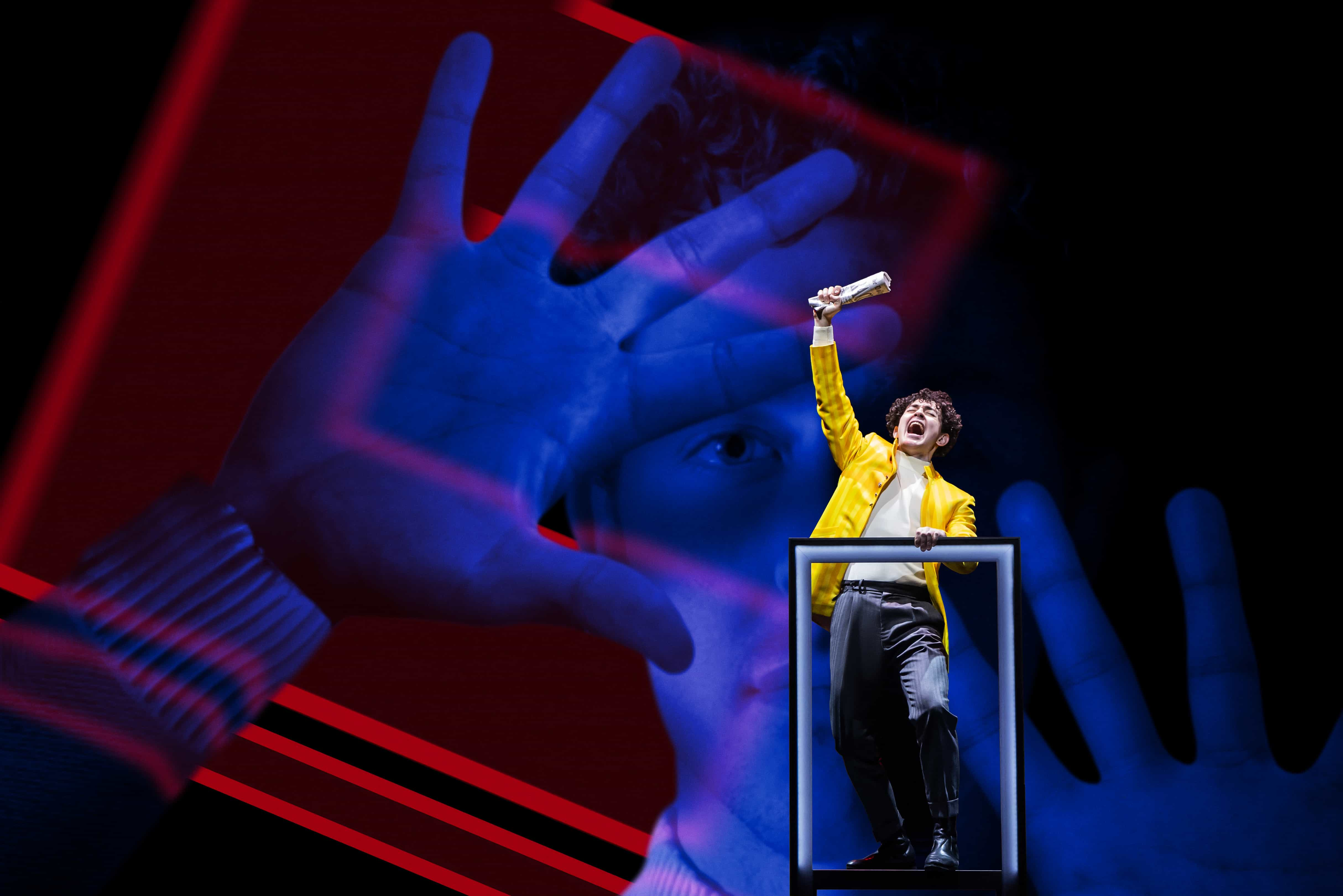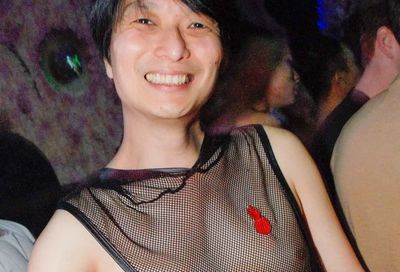Review: Smart People at Arena Stage
Arena's Smart People is a series of rushed vignettes and missed opportunities

Smart People, Photo: C. Stanley Photography
Thoroughly over-egging the batter, Lydia R. Diamond’s Smart People (★★) is too much of a good thing. If the premise — the throwing of a highly-educated mix of races and genders into one another’s romantic paths — has potential, the execution does not. Written as a series of vignettes building to a contrived PC pseudo-crisis (at least for the two males), the play is an inch deep and a mile wide. Put simply, these characters don’t interact, they merely trigger one another into endless spirals of heavy-handed socio-gender-racial self-analysis and accusation. If there is the odd subtle moment in which perceptions are interestingly addressed, there are far more in which the messaging is scrawled in primary colors (pun fully intended).
Take Diamond’s incongruous interludes of truncated dialogue inviting super-charged misunderstandings: the reticent African-American man is a doctor, not a nurse — shame on the African-American woman for her assumptions! But wait, there’s more: she has a bloody face — shame on the African-American doctor for assuming her boyfriend has beaten her! And shame on the white male academic for not getting the deep-seated heritage issues lurking in his super-confident Asian-American academic girlfriend! And shame on everyone for not getting how hard it is to be a white, privileged male academic — but even more shame on the privileged white male for not getting that he doesn’t get to shame anybody!
It’s the kind of PC cudgeling that makes two hours of Vin Diesel’s xXx: Return of Xander Cage, with its multi-cultural assassin brigade, look liked blessed relief.
If they can’t do anything about the vehicle, the cast does its best to rev up the ride. Gregory Perri gives his entitled academic Brian White some credibly ironic East Coast arrogant geekery, even if he looks far too young to be seeing himself as Establishment. Diamond never explores his provocative research on race with anything more probing than a spoon, but Perri does his best to give it some gravitas. And though Diamond sees the value in having White’s longtime friend Jackson Moore — who is African-American — challenge the science, she doesn’t give White the answers (specious or otherwise) any academic worth his salt would have already rolled out for any kind of funding.
And while Jaysen Wright brings an appealingly intelligent swagger to his Dr. Moore, Diamond gives us too little of what makes this man tick. His career is stymied, but is it because he is black or because he is a dick? The question is raised and it is intriguing, but like so much here, it is given about as much time and attention as something glimpsed from the window of a racing train. As his potential love-interest, Valerie Johnston, a stroppy and possibly talented actor, Lorene Chesley overcomes some initial awkwardness to bring much charm and comic timing, but Diamond never follows through on Johnston’s interesting gender-war skewering of Dr. Moore. And if their presumptions about their own race are delivered with fanfare, what about the equally interesting undercurrents of class friction? Had Diamond taken a breath and narrowed her scope, their dynamic could have been far more original, poignant and fun. Instead, Johnston’s scenes with Moore are typical of everything in People: so loaded with PC landmines, every step delivers an explosive outrage with nothing of substance in between.

Finally, highly charismatic but a tad tone-deaf to the cadence of the piece, Sue Jin Song describes well Ginny Yang, another character presented as a sum of many unexplored — and often predictable — parts. Song captures what makes Yang alternately repellant and likeable, but so what? Because, yet again, we don’t know what makes her tick. Boyfriend White has noticed, for example, that she is a shopaholic and slings it as a casual barb. But even as Song potently captures the private hit, like the college survey classes these academics so begrudgingly teach, Diamond is already onto the next topic: White’s need to be the archetypal strong male. Yang’s subsequent moment of cultural outrage is another pivot. Her donning of a subservient mantle in order to dominate White is intriguing, but without a more fully realized woman and relationship, even dolled up with some excitingly evocative projected imagery and music, her actions just seem like a very weird red herring.
In covering so much ground, Diamond denies her characters an essential depth and — for all the gainsaying — they fail to truly speak. Even more importantly, characters treated as little more than foils will not live in the imagination.
The bottom line here is that in her determination to leave no PC stone unturned, Diamond has missed an opportunity. A clever chattering classes rom-com with fewer, more thoughtfully-developed revelations would have left a far more indelible mark.
Smart People runs to May 21 at the Kreeger Theater in the Mead Center for American Theater, 1101 6th St. SW. Tickets are $41 to $111. Call 202-488-3300 or visit arenastage.org.
Support Metro Weekly’s Journalism
These are challenging times for news organizations. And yet it’s crucial we stay active and provide vital resources and information to both our local readers and the world. So won’t you please take a moment and consider supporting Metro Weekly with a membership? For as little as $5 a month, you can help ensure Metro Weekly magazine and MetroWeekly.com remain free, viable resources as we provide the best, most diverse, culturally-resonant LGBTQ coverage in both the D.C. region and around the world. Memberships come with exclusive perks and discounts, your own personal digital delivery of each week’s magazine (and an archive), access to our Member's Lounge when it launches this fall, and exclusive members-only items like Metro Weekly Membership Mugs and Tote Bags! Check out all our membership levels here and please join us today!






















